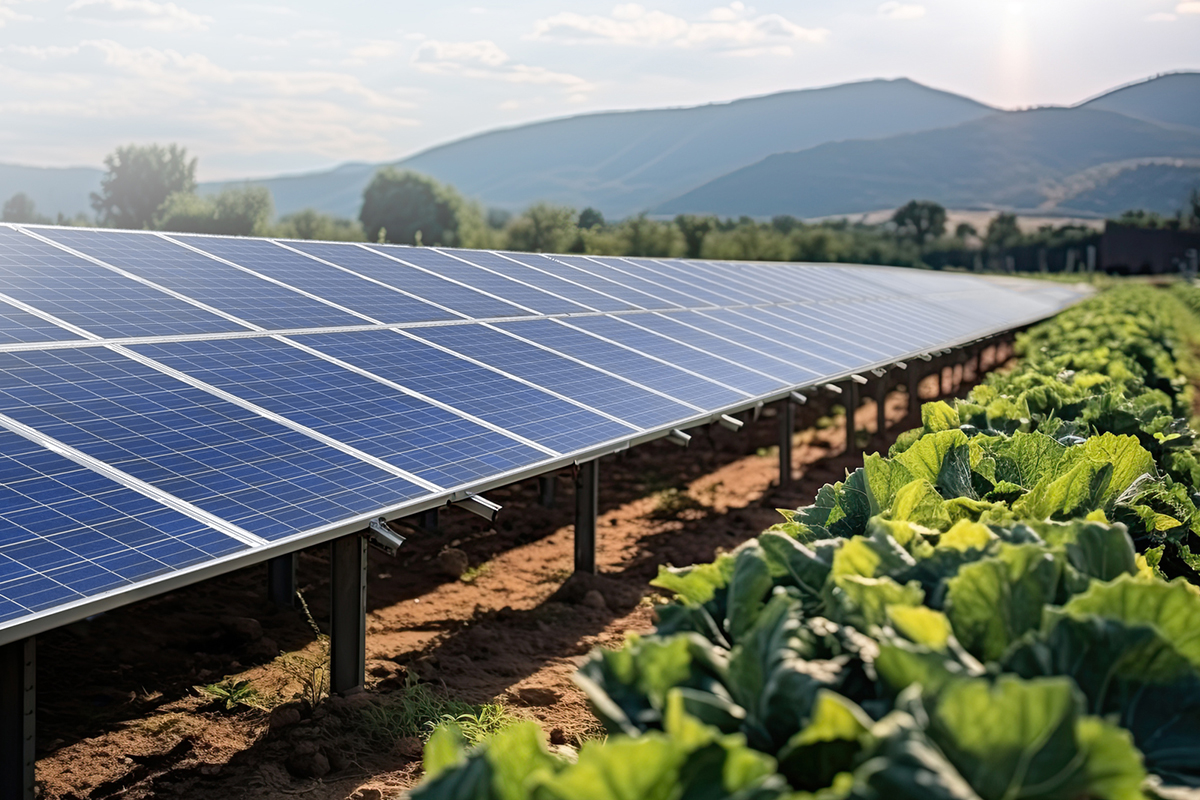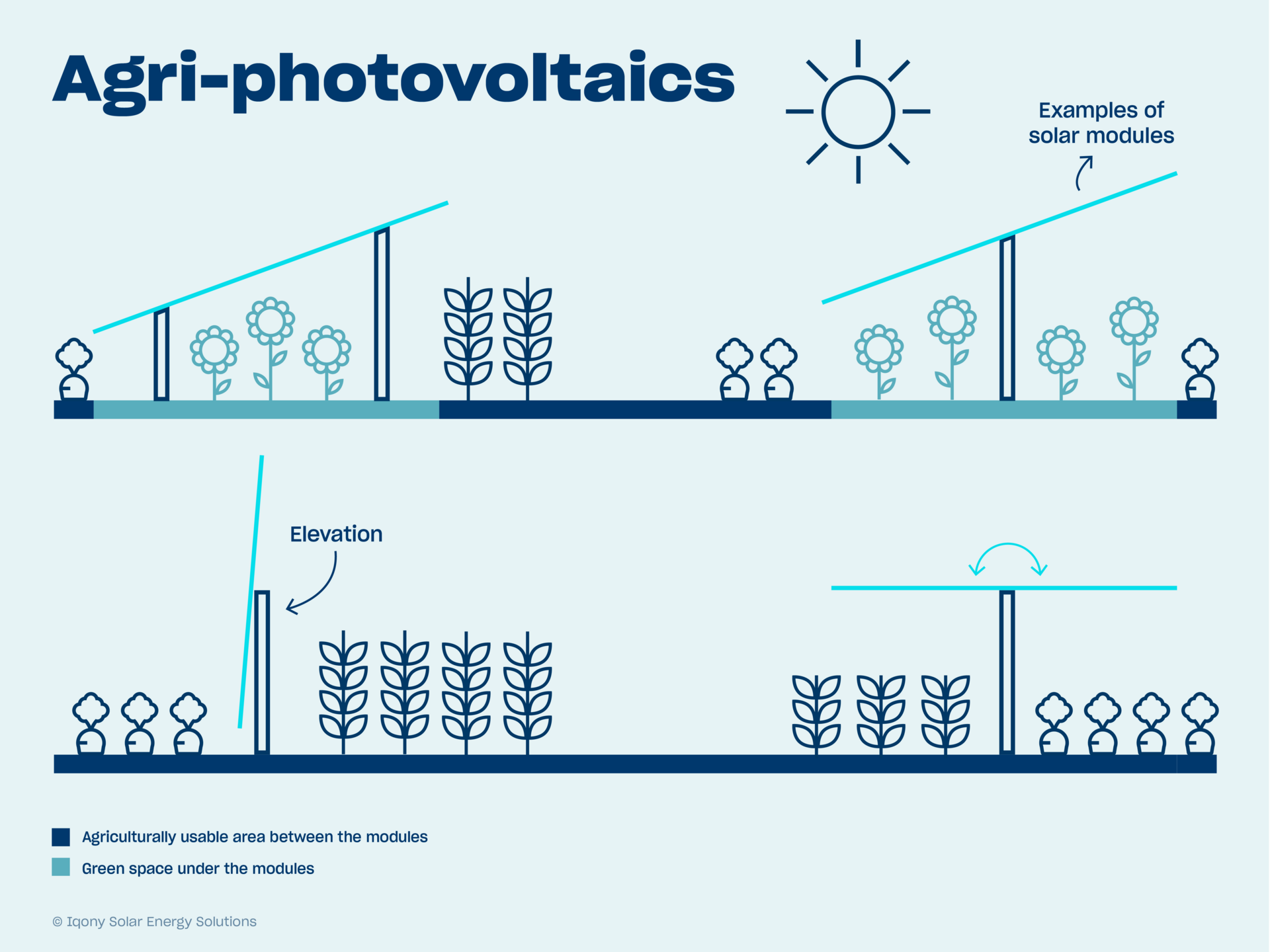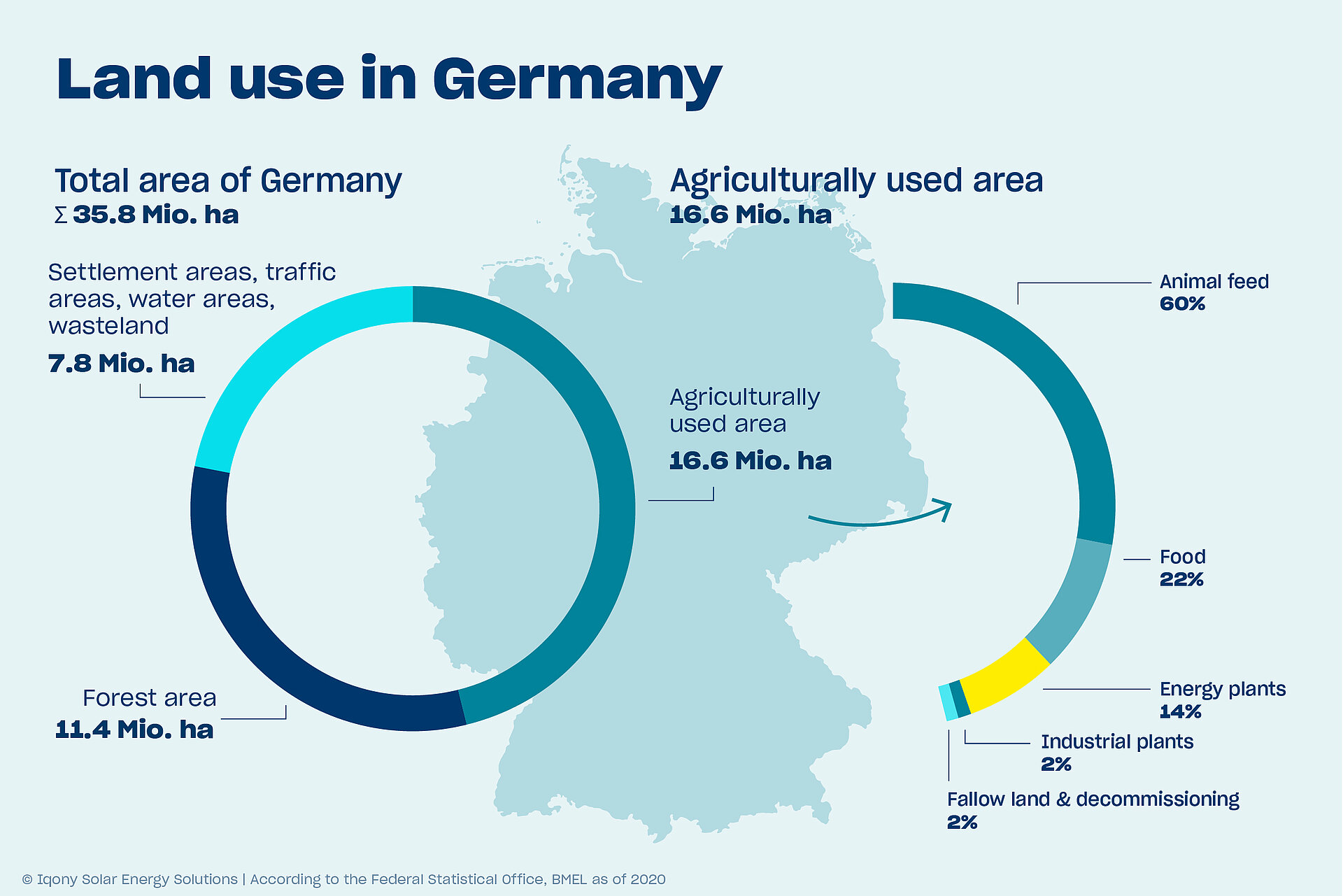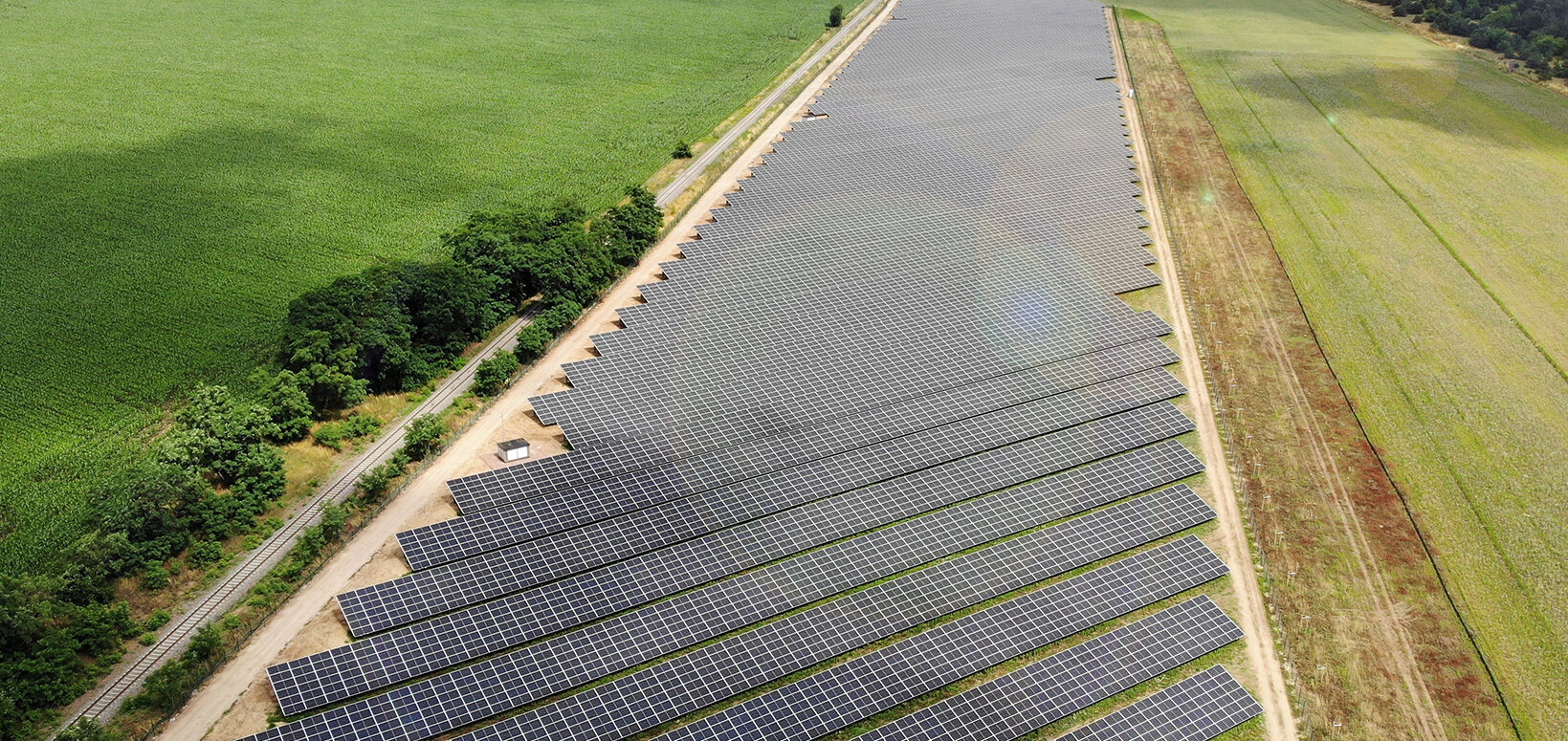
Leasing land for solar Solar systems for the energy transition
Contact us nowWe lease your land: create an additional income
Why should you lease your land for the construction of photovoltaic systems to Iqony Sens? There are many reasons for this. Solar parks can give new meaning to farmland and plots of land that have no economic use. Leasing the land to solar companies usually earns farmers more money than a conventional lease and promises secure income over a very long period of time because it is independent of the weather. At the same time, you are making a contribution to the energy transition and environmental protection. Reason enough for many farmers to consider a lease.
We explain what the advantages are, what you should look out for and what options there are for continuing to farm alongside solar power production.
Utilise areas sensibly and profitably
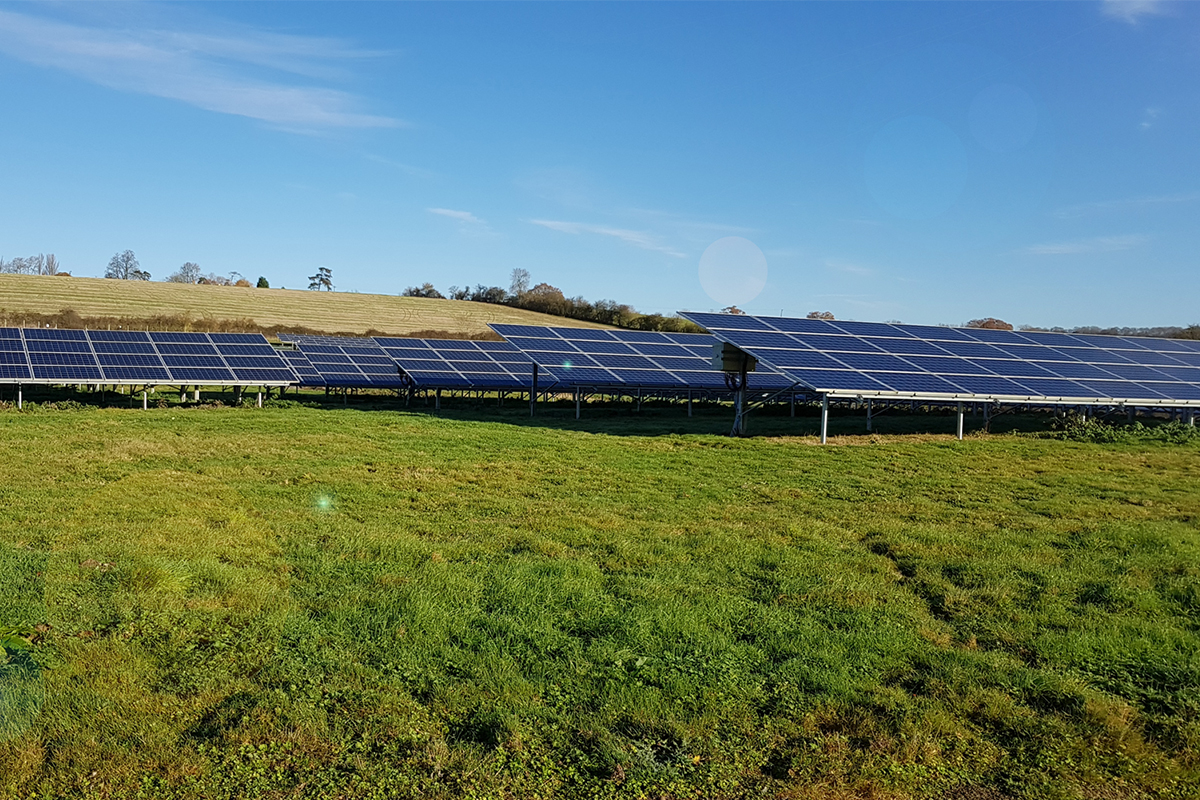
Leasing for PV is a sensible alternative, especially for arable land or grassland with little economic benefit. In this way, you can secure reliable income over a period of 30 years - regardless of the weather and without any effort. In this case, arable land or grassland that is unattractive for agricultural use is particularly suitable.
Benefit from the energy transition by leasing your land
The German government has decided to generate 80 % of energy from renewable sources by 2030. The expansion of solar energy plays a central role in this. However, other EU countries have also adopted similar targets. Italy and Spain, for example, are aiming to double the expansion of solar energy from 25 GW to 50 GW and 38 GW to 76 GW respectively.
Every single PV system contributes to reliably covering the growing energy requirements of the economy and private households. Anyone who owns land and leases their property for solar can therefore expect a high rental income.
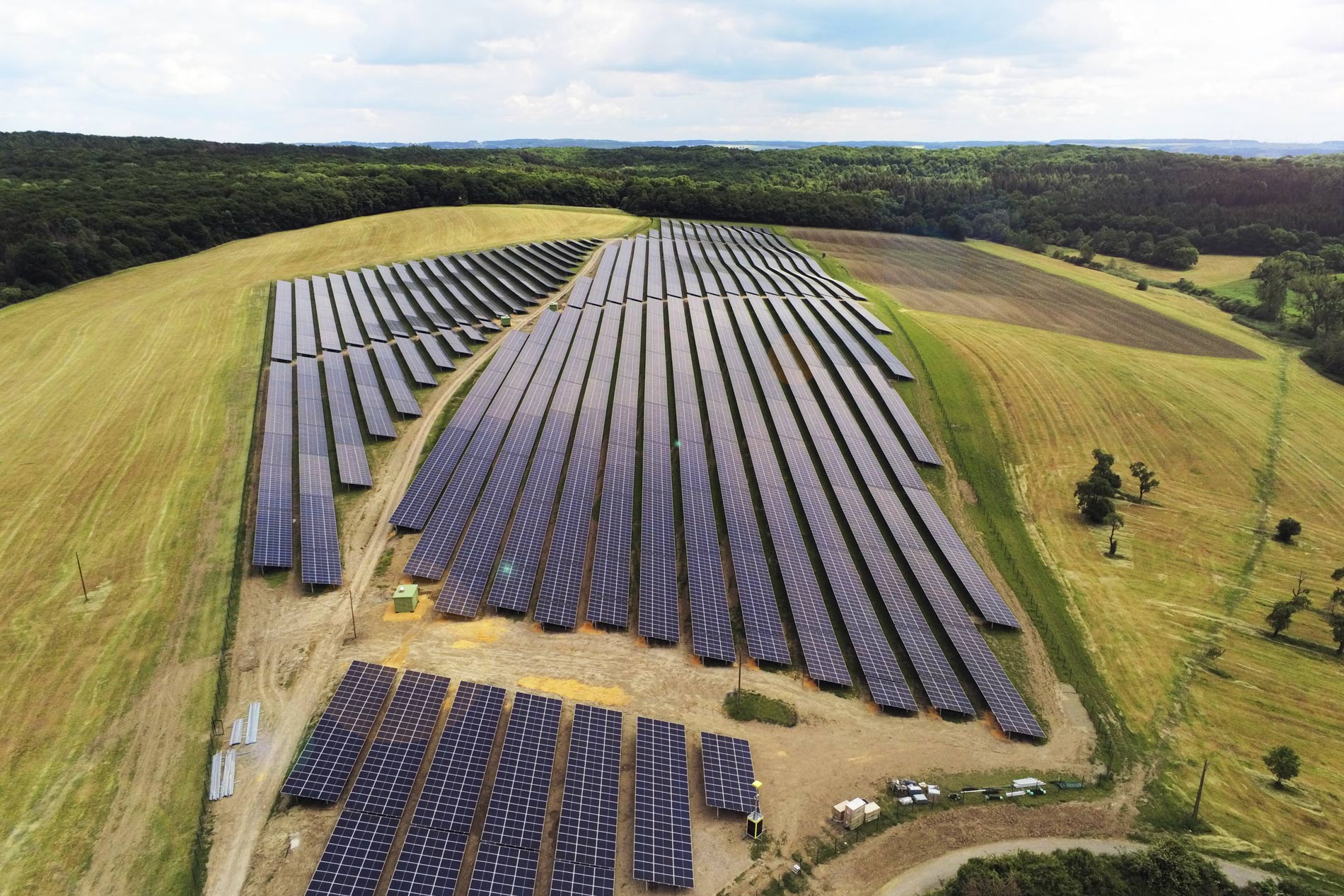
Lease open spaces and contribute to environmental protection
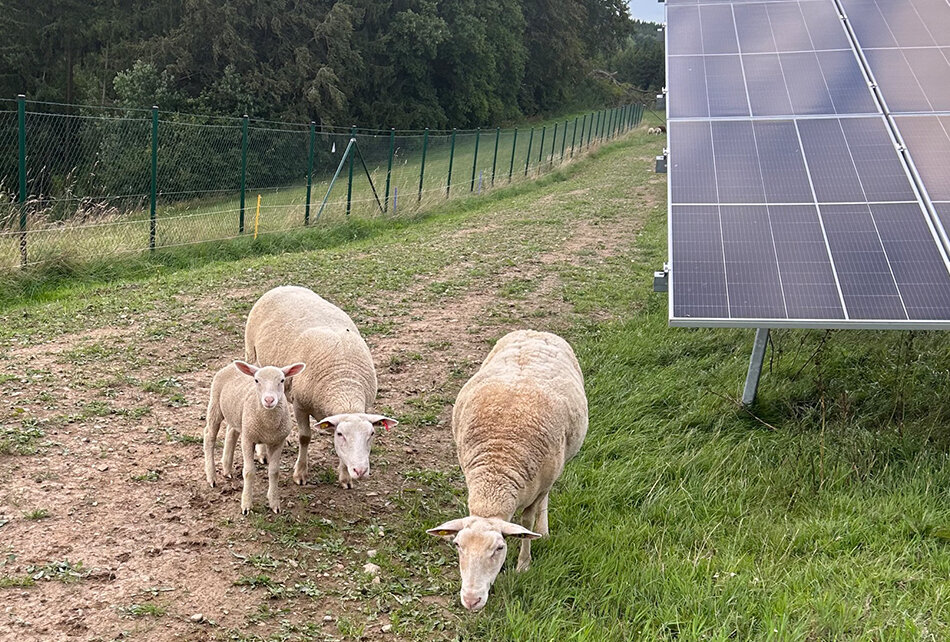
By leasing your land for solar, you are supporting renewable energy and making a contribution to climate protection. At the same time, local nature benefits from the PV system: during the lease period, the land provides a valuable habitat for numerous plants and animals. The PV system has therefore a positive impact on biodiversity.
Fencing at the optimum height also allows small animals to move freely around the solar park. Animal meadow dwellers settle again and remain largely undisturbed.
Proper green maintenance is crucial to creating a valuable habitat for flora and fauna. The area between the modules can be maintained by mowing or sheep grazing as an ecological alternative. We offer green maintenance as a service from Iqony Sens. But you are also welcome to do it yourself and generate additional income.
Agri-PV systems make it possible to combine the cultivation of food with the generation of electricity from solar power. To achieve this, the solar modules are spaced further apart than is usual for ground-mounted systems. This means that fruit, grapes and vegetables can be grown between the rows of modules. The orientation of the PV modules can be fixed or adjustable so that they can be swivelled depending on the space available or weather conditions (see illustration).
The basic idea is that the land under the PV system is used for agricultural purposes. In this way, solar power can also be generated on good soil and harvested twice: solar energy via the modules and fruit or vegetables on the farmland.
We would be happy to discuss the options for setting up a solar park on your property with you.
Agri-photovoltaics as plant protection
The site conditions for the cultivated plants change as a result of an agri-photovoltaic system. The modules partially shade the soil, which can lead to lower yields.
However, there are also positive effects: The superstructures protect the soil from excessive solar radiation or heavy rainfall - an aspect that is becoming increasingly important in times of climate crisis.
Which plants are suitable for agri-photovoltaics?
Due to the partial shading, shade-tolerant plants such as leafy vegetables (e.g. lettuce), forage species such as clover grass, various pome, stone and soft fruit species or special plants such as wild garlic are particularly suitable for Agri-PV.
But other plants can also be grown under or between the rows of modules.
Leasing farmland for solar – your advantages
- Secure lease payments over a long period of time.
- By leasing land, you enable the generation of clean electricity from solar energy and thus contribute to the energy transition.
- Our experts take care of project development, construction and operation of the solar system.
- You can generate additional income by maintaining your green space.
- Agri-PV systems offer your plants protection from rain or excessive heat.
Less land for food production?
When PV systems are built on arable land or grassland, critical voices are often raised and warn of a loss of agricultural land. They demand that arable land should be used for food and animal feed production. However, it is clear that the necessary expansion of solar power production through rooftop systems alone is not enough. In addition, sensible and sustainable concepts are now available - keyword Agri-PV - that do not result in the loss of agricultural land.
Another aspect is also not unimportant in this context: in Germany, for example, just under ten per cent of agricultural land is currently used for the cultivation of energy plants. However, generating electricity with ground-mounted PV systems is much more effective, as they generate around 30 times more electricity per hectare per year than biogas plants. If energy generation from biogas were to be replaced by PV, more electricity could be generated on less land, freeing up more agricultural land for food production.
Leasing farmland - what you need to consider
What price ist realistic?
If you want to lease your farmland to a solar project developer, you should first determine what a realistic lease price is for the size of your land in your federal state. A distinction must be made between conventional leasing of farmland to an agricultural business and leasing for energy generation with PV. In the latter case, the lessor can realise higher rental income.
As a guide, you can generally expect up to a mid four-figure sum per year and hectare. For a precise calculation, get in touch with your contact at SENS! We will be happy to send you a non-binding offer.
Is the area suitable for PV?
Hardly any area is unsuitable for solar installations. It is important that the grid connection is not too far away from the property. For this reason, land close to a high-voltage power line, another solar park, a wind turbine or a transformer station is particularly interesting. We would be happy to check the suitability of your property, simply send us a contact enquiry!
What do I need to bear in mind with a lease agreement?
It is advisable to seek legal advice when drafting the lease agreement. As a rule, lease agreements with PV companies run for several years, usually between 20 and 40 years. Such long terms are necessary in order to recoup the initial investment through the electricity yields of the following years.
You can also include in the lease agreement how the area under the photovoltaic system is also to be used: Should a beekeeper have access? Do you want to allow a shepherd to look after his flock there?
Does the lease involve an investment for me?
As the landowner or farmer, you merely provide the land for the solar park and receive lease payments in return. You do not have to make any investment yourself! SENS takes care of the construction of the solar park, the financing and everything else.
To what extent do I need to involve the community in my decision?
You should involve your municipality in the development and decision-making process from the outset, as it must authorise the construction of photovoltaic systems on your land. To do this, local authorities often have to draw up a development plan and authorise a change to the land use plan. This is followed by the planning and construction period for the solar installation.
Depending on your preference, the initial contact with the municipality can be made by you or by a contact person from SENS.
Get advice from our experts!
Farmers who lease their land for solar energy and thus secure additional income ask themselves many questions. Have all the requirements been met? What remuneration can you expect as a landowner? How should the lease be structured?
We at Iqony Sens will be happy to assist you as a partner in answering these and other questions.
We advise owners individually on letting and leasing land for photovoltaic projects.

